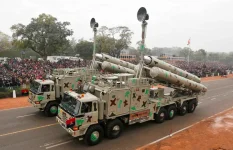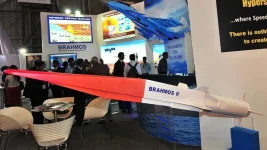- Views: 702
- Replies: 10

Despite significant efforts to bolster bilateral relations during Indonesian President Prabowo Subianto's recent visit to India for Republic Day celebrations, a finalized agreement for the sale of BrahMos missiles remains elusive.
Sources suggest that Indonesia is seeking further discussions before committing to the multi-million-dollar purchase.
Although both nations were eager to deepen their defence ties, Indonesia has requested additional time to consider the BrahMos deal. This indicates that certain aspects, possibly financial, technical, or geopolitical, require further negotiation.
A defence delegation from Indonesia is anticipated to travel to Delhi soon for further discussions and to finalize the details of the procurement process.
This potential deal holds considerable significance as it would represent a major advancement in India-Indonesia defence cooperation, contributing to regional security in the Indo-Pacific. However, Indonesia's cautious approach underscores the complexity of the deal and the various factors influencing its decision.
India remains dedicated to strengthening defence partnerships within Southeast Asia, with the BrahMos missile deal being a key element of this strategy. Intense negotiations are expected in the coming months as both countries strive to reach a mutually advantageous agreement.
This delay, while potentially disappointing, is not uncommon in large-scale defence deals. Factors such as technology transfer, local production, and integration with existing systems often require extensive discussion and planning.
The BrahMos missile, a supersonic cruise missile known for its precision and range, is a joint venture between India and Russia. Its potential acquisition by Indonesia would significantly enhance Indonesia's defence capabilities.
It is important to note that both India and Indonesia have expressed a strong desire to conclude this deal, suggesting that the current delay is likely a procedural matter rather than a sign of fundamental disagreement.
The upcoming discussions will be crucial in determining the final terms of the agreement and paving the way for its successful implementation.


